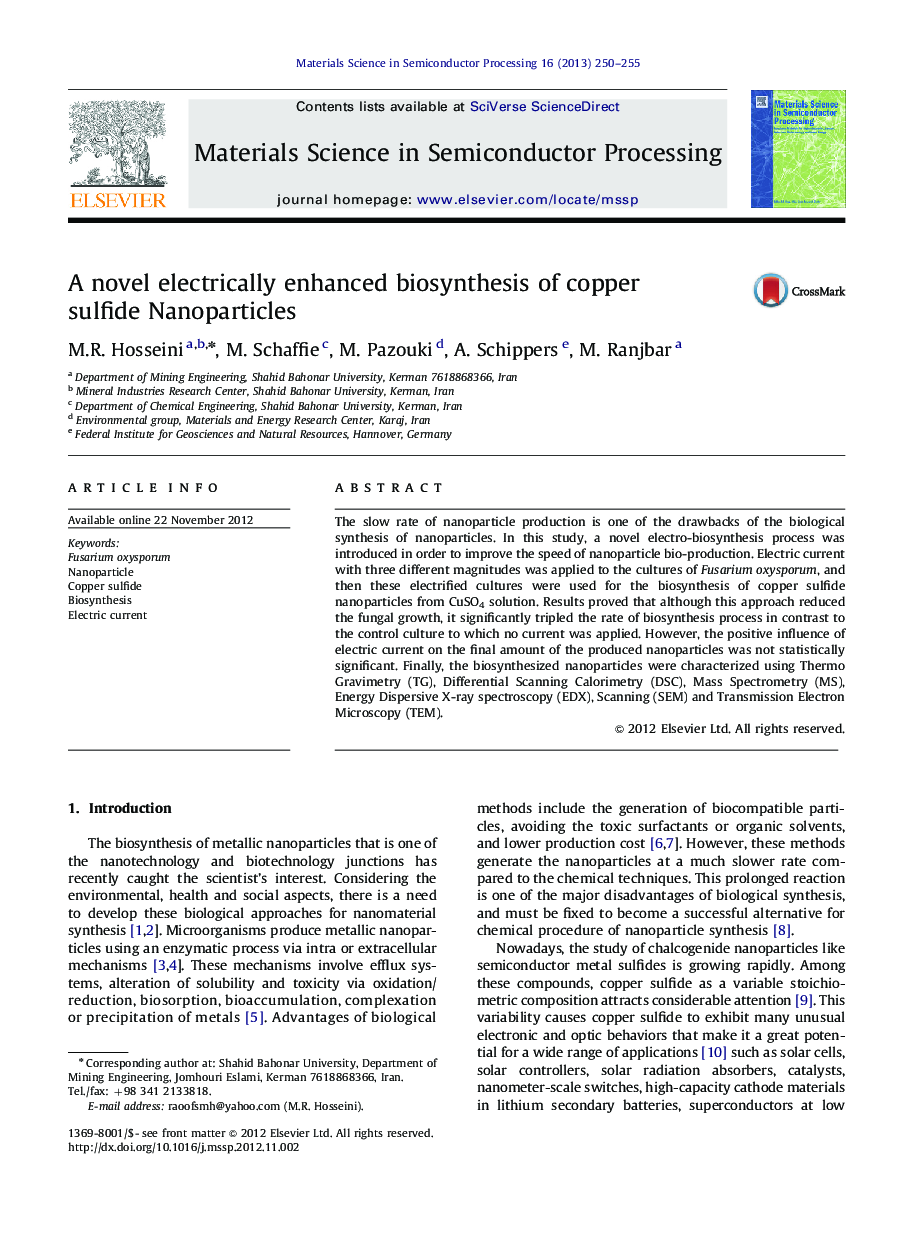| Article ID | Journal | Published Year | Pages | File Type |
|---|---|---|---|---|
| 726891 | Materials Science in Semiconductor Processing | 2013 | 6 Pages |
The slow rate of nanoparticle production is one of the drawbacks of the biological synthesis of nanoparticles. In this study, a novel electro-biosynthesis process was introduced in order to improve the speed of nanoparticle bio-production. Electric current with three different magnitudes was applied to the cultures of Fusarium oxysporum, and then these electrified cultures were used for the biosynthesis of copper sulfide nanoparticles from CuSO4 solution. Results proved that although this approach reduced the fungal growth, it significantly tripled the rate of biosynthesis process in contrast to the control culture to which no current was applied. However, the positive influence of electric current on the final amount of the produced nanoparticles was not statistically significant. Finally, the biosynthesized nanoparticles were characterized using Thermo Gravimetry (TG), Differential Scanning Calorimetry (DSC), Mass Spectrometry (MS), Energy Dispersive X-ray spectroscopy (EDX), Scanning (SEM) and Transmission Electron Microscopy (TEM).
